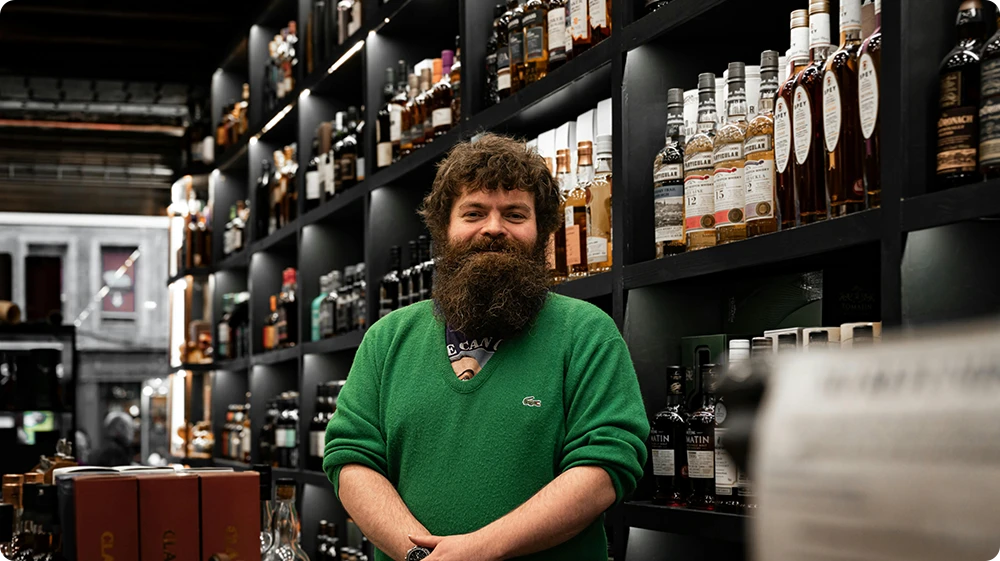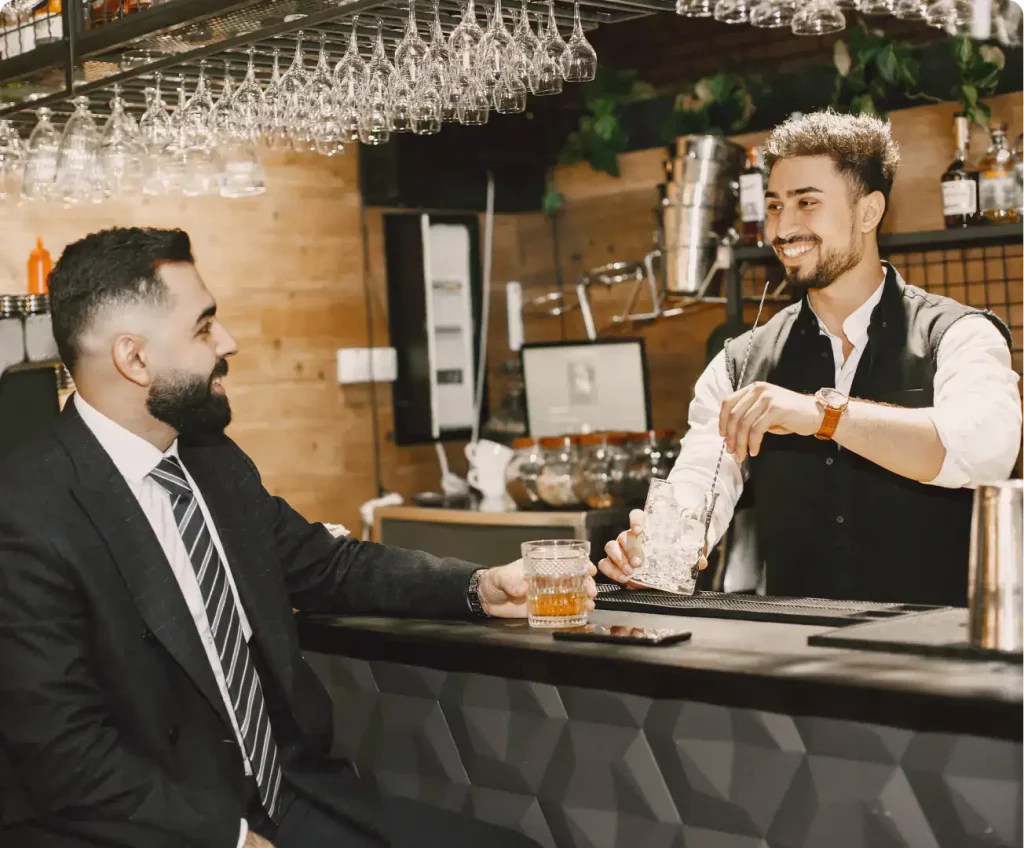
What is the Licensing (Scotland) Act 2005?
The Licensing (Scotland) Act 2005 is a law that regulates how alcohol is sold and consumed in Scotland. It was introduced to ensure that alcohol is sold in a way that promotes public safety, prevents alcohol-related harm, and helps local communities.
In simple terms, this law sets rules on who can sell alcohol, when they can sell it, and what they need to do to ensure it’s sold responsibly.
Why Is the Licensing (Scotland) Act 2005 Important?
This law is essential because it helps protect people by ensuring that alcohol is sold responsibly and not abused. It also makes sure that people selling alcohol are trained and that there are rules in place to stop alcohol being sold to minors (under 18s). The law also protects communities by giving local councils the power to decide where and how alcohol can be sold.
Different Types of Alcohol Licences in Scotland
There are three main types of alcohol licences in Scotland. Here’s a quick overview to help you understand what each one is used for:
Licence type | What it’s for |
Premises licence | Pubs, shops, restaurants, nightclubs. |
Personal licence | A person in charge of alcohol sales. |
Occasional licence | Short term events, like festivals. |
Let’s look at each one in more detail.
Premises Licence
A Premises Licence is for businesses like pubs, clubs, restaurants, and shops that want to sell alcohol. To get this license, the business must apply to the local council (Licensing Board) and prove that they meet all the legal requirements, including things like:
- Having staff trained to sell alcohol responsibly
- Ensuring the safety of customers
- Following the rules on when and where alcohol can be sold
Personal Licence
A Personal Licence is required for the person in charge of selling alcohol. This person must have training in responsible alcohol sales and must follow the rules in the Licensing Act. Without this licence, the person cannot sell alcohol, even if the business has a Premises Licence.
Occasional Licence
An Occasional Licence is for special events, such as weddings, festivals, or one-off events where alcohol is sold temporarily. This licence is different from the other two because it’s for short-term sales. You’ll need to apply for this licence if you’re hosting an event that involves selling alcohol.
How to Apply for an Alcohol Licence
Applying for a licence in Scotland is a necessary process. The application varies slightly depending on which type of licence you’re after. Let’s look at the basic steps:
Applying for a Premises Licence
To apply for a Premises Licence, the business must:
- Fill out an application form and submit it to the local Licensing Board.
- Put a public notice showing that they have applied for the licence, so the community can see it.
- Make sure to include details about staff training, safety measures, and the hours they wish to sell alcohol.
- Pay a fee for the application.
Once everything is submitted, the Licensing Board will review the application and decide whether to grant the licence.
Applying for a Personal Licence
To apply for a Personal Licence, the applicant must:
- Take a training course to learn about the laws surrounding alcohol sales.
- Submit an application form to the local council.
- Provide a criminal record check to show they are suitable to hold a licence.
Ready to Apply for Your Personal Licence in Scotland?
Make sure you meet the legal training requirements with our SCPLH course.
Take the SCPLH Training Course
Get certified online, learn at your own pace, and take the first step to becoming a licensed alcohol seller in Scotland.
Applying for an Occasional Licence
For an Occasional Licence, the process is simple:
- Fill out an application form, providing the details of the event and the times alcohol will be sold.
- Submit the form to the local Licensing Board well in advance of the event.
- The Licensing Board will review the application and decide whether to approve it.

Hosting a Pop-Up Bar or Festival? Here's What Licence You Need
Planning a short-term event or running a pop-up bar? You may need an Occasional Licence, which allows you to sell alcohol on a temporary basis. While a personal licence isn’t mandatory for this, completing relevant training can help ensure you’re complying with the law.
Mistakes to Avoid When Applying for an Alcohol Licence
Here are a few common mistakes people make when applying for an alcohol licence in Scotland and how to avoid them:
- Not Completing All the Necessary Paperwork
Make sure you’ve filled out every required form accurately. Missing documents or incomplete applications can cause delays or rejections. - Failing to Provide Adequate Training for Staff
If you’re applying for a Premises Licence, ensure your staff have completed the necessary training on responsible alcohol sales. If this training is not provided, your application may be rejected. - Not Planning for Alcohol Sales Hours
Some areas have restrictions on the times when alcohol can be sold. Be sure to check your local council’s guidelines on permitted hours, or your application might be delayed or refused. - Ignoring Signage Requirements
Failing to display the correct alcohol licensing signage at your business can result in fines or even the loss of your licence. Always ensure the required signs are clearly visible to customers. - Applying Too Late for an Occasional Licence
For one-off events, like a wedding or festival, don’t leave your application for an Occasional Licence until the last minute. You need to apply in advance to allow the Licensing Board time to review your application.
By avoiding these common mistakes, you can ensure a smoother application process and improve your chances of successfully obtaining your alcohol licence.
What You Need to Know About Alcohol Sales Hours
The Licensing (Scotland) Act 2005 also sets rules for when alcohol can be sold. Here’s what you should know:
- Premises Licence holders must follow set opening hours for alcohol sales, which may vary depending on the location and the type of business.
- Some areas may have restrictions on alcohol sales, called overprovision, which means alcohol cannot be sold in certain areas because there are already too many places selling alcohol.
These rules are in place to ensure that alcohol is not sold at unreasonable times, like very late at night, to help reduce alcohol-related harm.
Rules for Selling Alcohol in Scotland
Before you start selling alcohol under any licence, there are a few important rules that every business or event must follow. These apply to all licence holders, whether it’s a shop, a pub, or a temporary event like a festival.
Rule | What it Means |
Free tap water | You must offer tap water for free if alcohol is being sold on-site. |
No “drink all you can” deals | You can’t run offers that encourage drinking a lot of alcohol quickly or cheaply. |
Fixed alcohol measures | Alcohol must be sold in standard sizes: 25ml (spirits), 125ml (wine). |
Challenge 25 policy | You must display signs and check ID if the buyer looks under 25. |
The Importance of Displaying Alcohol Licensing Signage
One crucial part of the law is the requirement for clear signage. Businesses that sell alcohol must display signs that show:
- The alcohol licence of the business (this must be visible to the public).
- The alcohol sales hours (when alcohol can be bought).
- Rules to prevent selling to underage people.
This signage ensures that both staff and customers are aware of the rules and helps to promote a safe drinking environment.
Consequences of Breaking the Licensing Rules
Failing to follow the rules of the Licensing (Scotland) Act 2005 can result in serious consequences for businesses. These include:
- Fines or even closure of the business.
- Losing their alcohol licence.
- Criminal charges for selling alcohol to minors or violating alcohol sales rules.
Recommended Courses on Hurak
If you’re planning to sell alcohol in Scotland, it’s essential to complete the proper training. For anyone applying for a Personal Licence, the Scottish Certificate for Personal Licence Holders (SCPLH) is a legal requirement. This course teaches you everything you need to know about alcohol laws and responsible sales.
You can also find hospitality-focused training that covers everything from customer service to food safety, handy if you’re running a venue like a pub, café, or restaurant.
Refresher Training for Personal Licence Holders
In Scotland, if you hold a Personal Licence, you’re legally required to complete refresher training every five years to keep your licence valid. This training ensures you stay current with any changes in alcohol laws and licensing regulations.
The refresher course is shorter than the original SCPLH training, but just as important. Failing to complete this training on time could result in your licence being revoked by the Licensing Board.
Book your SCPLH Refresher Course
Make sure to complete your refresher course well before the deadline, ideally at least 3 months in advance, so there’s time to submit proof to your local Licensing Board.
Conclusion
The Licensing (Scotland) Act 2005 is a crucial law that helps control the sale of alcohol in Scotland. It ensures that alcohol is sold responsibly, protects the community, and helps businesses comply with clear guidelines.
If you’re thinking about opening a business that sells alcohol or hosting an event that involves alcohol, it’s essential to understand the licensing process and requirements. The law is there to protect both you and your customers, so always make sure to apply for the correct licenses and follow the rules.
FAQ
What is a Premises Licence?
A Premises Licence is needed for businesses that want to sell alcohol on their premises. It allows them to sell alcohol to customers during specific hours.
How do I apply for a Personal Licence?
To apply for a Personal Licence, you must complete a training course and submit an application form to the local Licensing Board, along with a criminal record check.
Can I sell alcohol at a wedding or event?
Yes, if you’re hosting an event, you can apply for an Occasional Licence to sell alcohol temporarily. You must apply in advance and provide the details of the event.
What happens if I don’t display the required signage?
Not displaying the required signage could result in fines or even losing your alcohol licence.




